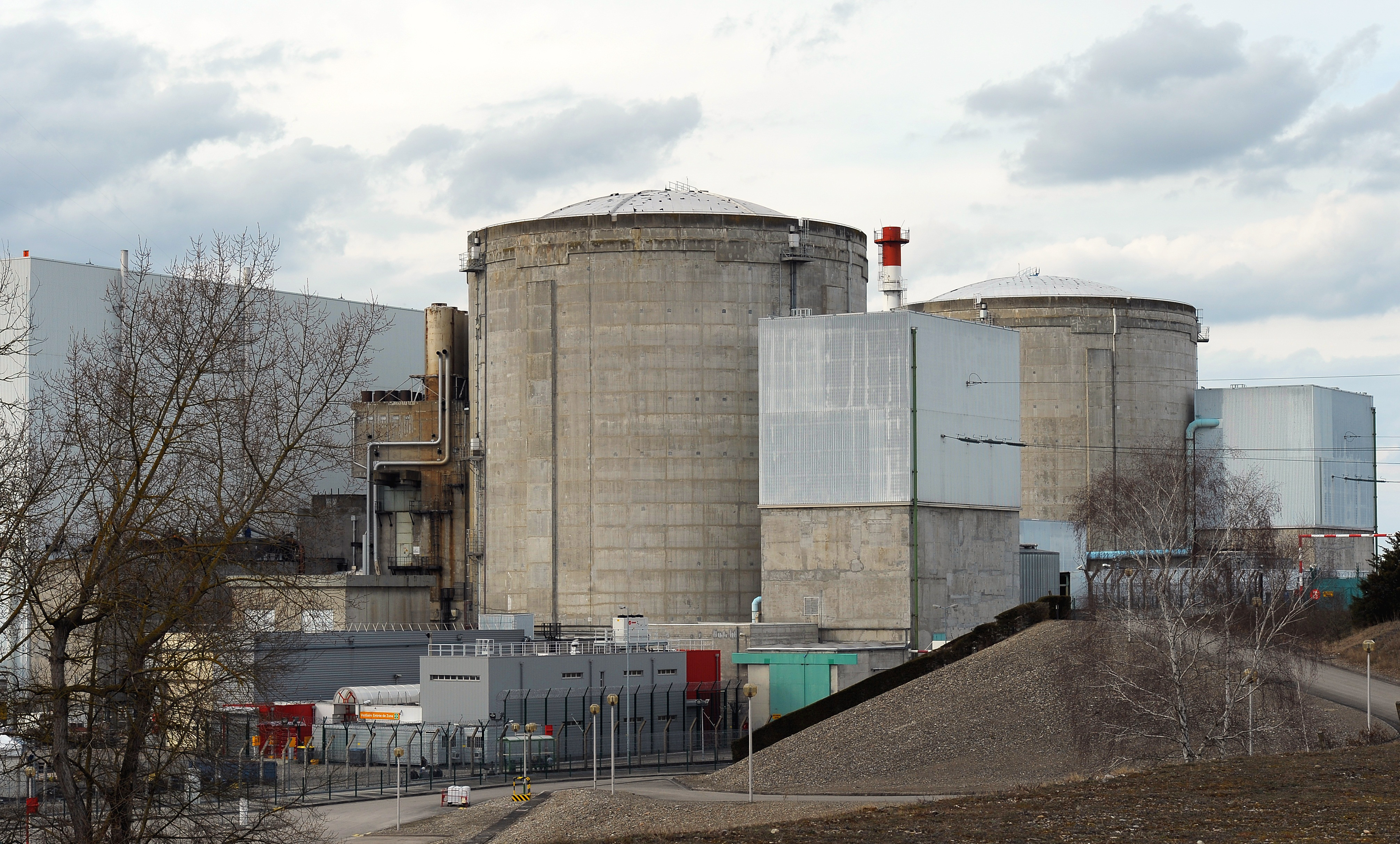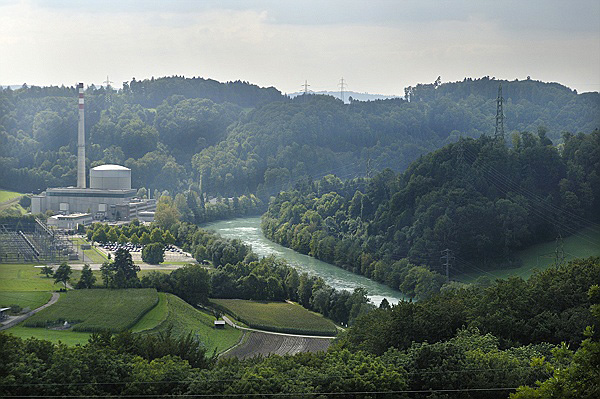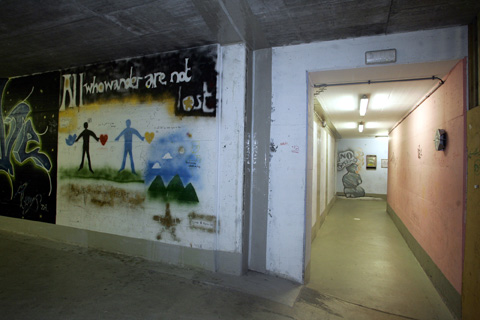Europe divided over nuclear energy

The possibility of a major release of radiation at Japan’s Fukushima nuclear power plant has made Europeans take a closer look at their own nuclear energy policies.
Of Switzerland’s four European Union neighbours, one gets nearly four fifths of its energy from nuclear power while another has added a nuclear free article to its constitution.
All EU states are ready to work out tough safety checks, Energy Commissioner Günther Oettinger announced on March 15, after an extraordinary meeting of EU energy ministers.
“We have to ask ourselves: Can we in Europe, within time, secure our energy needs without nuclear power plants?” he said on German television.
But the approaches of the different countries still diverge widely.
Italy: a new moratorium
The Italian government decided on Wednesday to suspend for one year its plans to phase nuclear power back in, and has given itself 24 months to come up with a more precise definition of its nuclear power strategy.
Since the Chernobyl disaster in 1986 Italy has flip-flopped on the issue. A referendum in 1987 called for nuclear power to be abandoned, and four power stations were closed down.
But given Italy’s dependence on other countries for its energy, in 2009 the government introduced a law that would bring back nuclear power, with the construction of 13 new reactors starting in 2013.
The decision ran into opposition, and a referendum is to be held on it in June.
The government initially stated that the problems in Fukushima would make no difference to Rome’s strategy.
But as many regional governments in Italy have expressed their opposition to nuclear energy, and the latest polls show that 53 per cent of Italians intend to vote “no”, the rhetoric has changed.
“The government is neither blind nor deaf to the news from Tokyo,” the environment minister has declared.
Germany: looking for alternatives
In Germany the lifespan of nuclear power stations is limited under a law passed in 2000, which provided for the phasing out of nuclear energy. However, in 2010 the government of Angela Merkel extended the lives of the existing 17 nuclear power stations.
But in the immediate aftermath of the Fukushima accident, the government ordered the seven oldest stations in Germany to be shut down temporarily. All 17 are to be subjected to tough safety examinations before June 15.
On Tuesday Merkel held a meeting with the prime ministers of the German states affected to discuss the future of German nuclear power stations. But they were unable to agree on how to speed up the expansion of alternative energy sources.
Another meeting is to be held with all state prime ministers on April 15 aimed at producing a specific programme for boosting renewable energy.
However, an “ethical commission for safe energy provision” has been established to assess the country’s approach to nuclear energy. And the already existing reactor safety commission is to draw up a set of questions in the light of the events in Japan, that will be used to review all nuclear facilities in Germany.
Environment minister Norbert Röttgen has said that it would be possible to give up nuclear energy if renewable energies could account for 40 per cent of use.
France: national prestige
France gets 78 per cent of its energy from nuclear power stations, more than any other country in the world, and with 58 nuclear power stations is second only to the United States (104, providing 20 per cent of its energy).
The “total nuclear option” is also a matter of national prestige. Unlike in Germany, where the anti-nuclear Green party is firmly rooted in national politics, in France Greens hold only nine seats out of 920 in the two chambers of parliament.
Four days after the problems started in Fukushima, Prime Minister François Fillon told members of parliament that safety checks would be carried out on all French nuclear power stations. But at the same time he described nuclear power as “one of the safest and most transparent” of energies.
Environmental activists are calling for a national debate and referendum on the issue. But a brief look at web forums suggests that by and large nuclear energy is accepted by the French people.
Austria: constitutionally nuclear-free
Austria is the only EU neighbour of Switzerland which does not produce nuclear power. A referendum in 1978 decided by a narrow margin not to bring into operation its only nuclear power station, just completed at Zwentendorf.
Later that year a law was passed making it mandatory to hold a referendum before any nuclear power station could be built. In 1999 the country’s nuclear free status was enshrined in the constitution.
The Austrian government now wants to push an anti-nuclear energy policy within the European Union.
Although Austria has no nuclear power stations of its own, it uses nuclear power from abroad. It is keen to see common standards for comprehensive safety tests on all European nuclear power stations.
Of the 27 EU countries, 14 have nuclear power. France is the leading European nuclear energy consumer.
France has 58 nuclear power stations, followed by Britain 19, Germany 17, Sweden 10, Spain 8, Belgium 7, Czech Republic 6, Finland 4, Hungary 4, Slovakia 4, Bulgaria 2, Romania 2, Slovenia 1, Netherlands 1. Italy and Poland have announced plans to construct plants.
Around the world, the US has 104 nuclear plants, Japan 55, Russia 32, South Korea 21, India 20, Canada 18, and China 13.
Switzerland has five nuclear power plants which generate about 40% of the country’s electricity. They went online between 1969 and 1984.
In response to events at the Fukushima nuclear plant in Japan, the Swiss government suspended all processes related to the building of new nuclear power plants.
It has also asked the environment ministry to examine the political, economic and energy consequences of three scenarios:
1. Maintaining the current electricity supply mix, including replacement of the three oldest nuclear power stations.
2. Not replacing nuclear power stations when they reach the end of their lifespan.
3. Abandoning nuclear power altogether and shutting down nuclear power stations before the end of their lifespan.
A preliminary report is to be delivered in June.
Swiss authorities are calling for the immediate shutdown of the French Fessenheim plant which is located just 35 kilometers from across the border from Basel.
The head of France’s nuclear safety authority responded by saying he saw “no reason” to close it down.
Constructed in 1970, Fessenheim is France’s oldest nuclear power station.
In 2001 a report by the International Atomic Energy Agency found that the plant was not earthquake proof and did not meet safety standards.
with Marc-André Miserez and Daniele Mariani (Adapted from German by Julia Slater)

In compliance with the JTI standards
More: SWI swissinfo.ch certified by the Journalism Trust Initiative














You can find an overview of ongoing debates with our journalists here . Please join us!
If you want to start a conversation about a topic raised in this article or want to report factual errors, email us at english@swissinfo.ch.